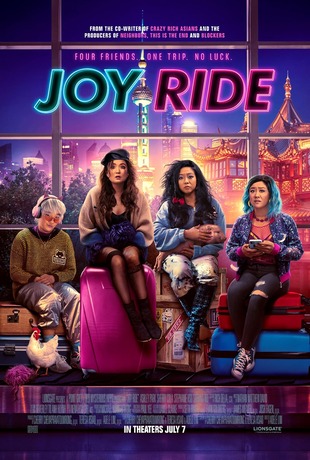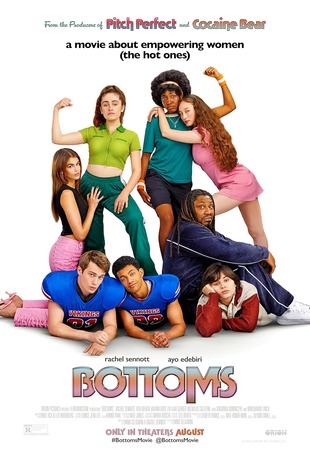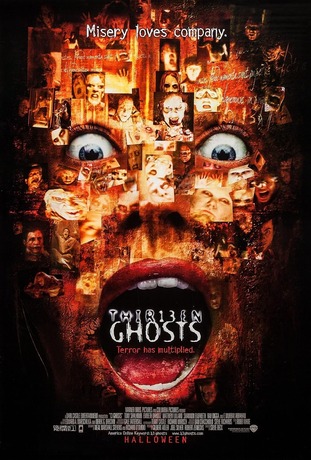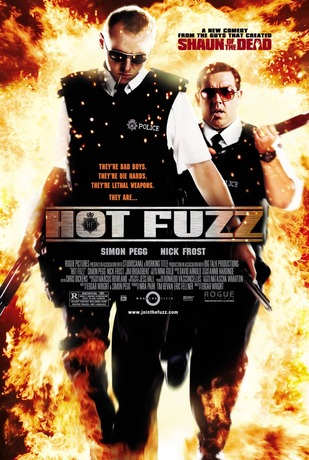March 2025 Watch
Wednesday, 2 April 2025
Ahhh, this month has been so busy. Between classes and creative projects, I barely have any time to watch films or full television shows. I spent a good portion of the time I would normally spend on new things on old ones this month. Still, I had a chance to try out a handful of new films.
Joy Ride (2023, dir. Adele Lim)
At the start of my last post I came to some admittedly hesitant conclusions about what I wanted to see this month after a while of big disappointments and I’m here to say I was entirely wrong. What I was actually looking for was fun. I said a lot about meaning and creative choices and ambition and while that is true to some extent, what’s gotten me back into my groove most was a genuinely funny movie.
Joy Ride follows Audrey Sullivan and her friends as she journeys to China on an important business trip. Audrey was adopted as a young girl and due to a series of circumstances, the trip becomes in part a search for knowledge about her past. There is a cast of three other characters who accompany her on this journey: Lolo, her childhood best friend and bold artistic type; Kat, her college roommate and famous actress; and Deadeye, Lolo’s cousin and awkward K-pop fan. Together, they journey around China in search of information about Audrey’s birth mother.
So right off the bat, I found this movie very funny. I won’t act like every joke was a success, but I laughed out loud a good number of times throughout. There was this overwhelming quality to the dialogue that I find difficult to explain, in which a joke would take several seconds to register and my friend watching and I would burst out laughing when it finally hit. I was briefly worried this would start to annoy me, but instead I found myself impressed by the quickness of the wit. I’d argue that is a difficult quality to display in scripted comedy, so I was excited to see how this movie went about expressing it.
I can’t say I was a huge fan of the needledrops or costumes. There was a certain insubstantiality to them—like they were just slightly out of date or too frequently memed on to be innovative. When the rest of the movie proved to be genuinely witty, this was just a bit of a disappointment. They definitely did their job in terms of communicating what they needed to communicate, but I think some refinement in this aspect would’ve really brought the movie to the next level. There were some fun, stylistic moments with the editing that would’ve been well-complemented by a slightly more precise costuming or music choice.
The emotional beats were pretty typical of a comedy, which is to say there was a clear set-up and payoff. A few times there was this device of something being introduced in literally the scene before only to save the day in the following scene. Again, I found this did not bother me at all, instead sort of poking at the seams of story, deemphasizing the wit of the plot itself in favor of the more immediate jokes. I came to really like this simplicity, as it allowed the writing and performances to shine through in a way that I’ve been looking for for a while. The actual emotional arcs of the film seemed pretty standard for a comedy with how they were treated; the main character’s journey occurred with little embellishments, which worked for the tone the movie was going for.
This movie was just what I needed to get me out of a funk. It wasn’t reinventing the wheel, but did well with what it was trying to do—which is be funny. I’m sure there is a list of things I could critique to make it into a different movie, but I quite liked the one I watched, so I have no real qualms with it.
Bottoms (2023, dir. Emma Seligman)
I went into this movie worried: so often had I been told of its greatness, surely it could not live up to the hype. How many times had I been disappointed in the last few months at a movie that had been sold to me as amazing only to be bored the whole time? I am delighted to say I had no such issue with this movie at all.
In Bottoms, Josie and PJ are high school seniors, lesbians, and total losers. In order to spend time with girls at school and avoid expulsion after being framed for injuring a football star, they decide to start a self-defense club. The club worries less about self defense, instead ending up a Fight Club-logline-style organization. As they grow closer to their crushes and the other girls in the club, they begin to attract attention from a more suspicious member of the football team. At the big pep rally, their true objectives in starting the club are revealed, resulting in a fight between the club members; at the end of the movie, they must again band together to take on the opposing football team in their town’s blood feud high school rivalry.
This movie uses the tropes of teen comedies so well and absolutely perfectly straddles the line of poking fun at them while also using them to advance the plot. To some extent, this movie is deeply predictable: the underhanded plot to meet girls, the beautiful popular girl finding out her beautiful popular boyfriend is cheating, the best friend fight, the third-act reveal of their lie. And yet, this is complemented by these kooky escalations of drama and jokes that make it feel fresh and exciting. The basic building blocks allow for the movie to retain a strange sort of groundedness amidst moments that are otherwise demanding a lot of their audience, ironic for the hyperdramatic artifice of teen comedy staples.
I want to take some time to truly appreciate the jokes of the film, if only because I worried for them to start. This movie has unfortunately fallen victim to becoming a frequent target of those one-minute clips online that take the jokes out of context for content bait; I, unfortunately, had seen many of these and they just did not hit without the over-the-top worldbuilding the movie employs. [transition] There are jokes every part of this movie—spoken and contextual, of course, but also in the backdrop of the scenes, in the use of tropes and archetypes, in the very writing itself as scenes are literally constructed (class being as long as the scene is, for example). This made for such a rewarding watch, as it felt like every little detail was interested in contributing to the genre of the movie.
Of course, the movie could not be perfect, and I came out wondering if I should discuss one of my main gripes with it. Here’s the thing: all of the over-the-top moments, however ridiculous they are, are fully set up; the same can be said of the more straightforward drama. So I spent this whole movie knowing that something would happen at the end and just a little bummed out when it did. This of course, deals with the characters PJ and Hazel ending up together. On the one hand, it would be a bit ridiculous to criticize a movie for one subplot not working out in a satisfying way (not that I haven’t done it before, but still); but on the other, shouldn’t all of the subplots add up to something meaningful to the work at large? I struggle with this because I find this so often with romantic subplots, as ubiquitous as they are, and personal feelings about that aside, they are not always well done. Still, it feels silly to go, “Well I didn’t like these characters together,” and expect that to be some great examination of the movie. But, with some reasoning, I think it can at least speak to some of the ideas the movie wants to discuss. Putting these two characters together underscored a part of PJ’s story that I was just not a fan of, using this trope of high school comedies without subverting it in the way it was so eager to do with other aspects of them. Moreover, especially with this ending though not entirely because of it, PJ’s growth as a character felt much less interesting than that of Josie, Isabel, or even Brittany (which is saying a lot, as she was a very minor character). Hazel was also more of a side character, but I just found myself disappointed that she didn’t get as self-realized of an ending as other side characters.
To speak more specifically, Hazel essentially became a prop for PJ’s story in this moment, less self-actualized than even Brittany, who through their kiss came to her own realization about her sexuality. Meanwhile, PJ’s story would’ve worked better had she not ended up in a relationship due to the specific things her character needed to learn and did or did not learn, to various extents. We come to the end of the film with this movie kiss that was neither earned by the specific character arcs, nor exciting for the audience as there was little chemistry between the actors, even if the plot beats were familiar set-up. My conclusion comes down to this: it was an aspect of the movie, and one I didn’t like very much. If I were to not mention it, that would assume that a romantic subplot in a movie is for whatever reason not as worthy of criticism as other elements. The ubiquity of them suggests to me that, in fact, they say a great deal about the movie, as much as any other subplot would, and are thus deserving of the same attention as any other element. I’m not frustrated by the romantic subplot being there, but by the idea that it is so foundational to storytelling it has to be in the story whether it is well-written/relevant or not. In this movie, it felt like the one place the film was completely unaware of the way it had, until then as well as after, played so well with genre and tropes.
Hazel’s underwhelming relationship ending aside, this movie was excellent. The way it played with its genre and had this utterly absurd yet remarkably comprehensive sense of humor was genuinely so fun to see. Basically everybody in this movie was so funny, and I have to say I was a huge fan.
Thir13en Ghosts (2001, dir. Steve Beck)
I genuinely feel pranked after watching this movie in terms of what I expected versus what I got. I’ve had such good luck with movies this month and this was such an irregularity in that pattern and I spent so much of the movie waiting for the twist when it would suddenly be good.
Thir13en Ghosts involves a family inheriting a mansion in the countryside from the father’s uncle. They are approached by someone who used to work for his uncle, a psychic with an important warning for them. While touring the house, the family and psychic become trapped in the house. Its glass walls move and act as a prison for a dozen ghosts captured by the uncle; eventually, they are released and chase the family around, putting them in mortal danger.
If you watch this movie, the things about it that are poorly done are so plentiful and apparent it seems silly to even point them out. Yet this was recommended to me by multiple people to such an extent that I had the understanding it is one of the best horror movies ever. I have a hypothesis for why that might be the case, but until then, I want to clarify: not a single aspect of this movie compelled me.
The most egregious issue is probably the way it is utterly overwhelming. The sound mixing is abysmal, with the dialogue so quiet I could barely hear it with the volume turned all the way up and the louder moments (screaming, sound effects, etc.) so loud I was worried my neighbors would complain even when I turned it down. There was no striking a balance; I was constantly having to adjust to be able to hear and then to not get a noise complaint. These “louder moments” largely occurred with the distinct editing style. I want to give it kudos for originality, but that’s about where my compliments end. There are these constant bright and screeching flashes of visions that make it genuinely unbearable to watch. If I had seen this in a theater, there is no way I would’ve made it even halfway through the movie. That’s to say nothing of the visual effects, which were vastly underwhelming, lacking a strong execution, though the designs were all right. Finally there is the set, which is cool in concept and absolutely terrible once executed; this is not due to lack of skill, but because it doesn’t work well on camera. The haunted house it takes place in is made of glass walls with writing on them, some of which only appears with special glasses that also allow their wearers to see the ghosts. I knew about the visuals going in so I wasn’t surprised, but I found it way too difficult to get a sense of space. Obviously this is the idea, but with all the other overwhelming elements going on, it was too much.
In terms of the writing, this movie was really focused on creating a complex lore that did not work for the genre. I’d argue horror often demands a simplicity in premise that demands an amount of creative restraint in order to create a cohesive project. This is something I admire about it as it can allow other elements of story to shine through; the sort of gadget-y, fantasy-historical approach to the ghosts was perhaps an interesting idea, but not one that works well with film, or at least with this film.
Outside of the lore, and I’d argue because the writing prioritized explaining it, we really get very little of the cast of characters who populate the movie. Their motivations were superficial when they weren’t nonexistent; we were often told of motivations, but there was little if any evidence to support these claims. In one particularly difficult example, you have this teenage girl whose mother just died, who is demonstrating a huge amount of responsibility over her family in the wake of this, who is called a slut by her younger brother while the family sits around and laughs, and who is elated at the prospect of living in a mansion full of glass walls. She is entirely lacking in any kind of internal drive that characterizes her actions. This is the extent of her character, and I’d complain about it more if every single other character didn’t get the exact same treatment—well, there is one notable exception. This is Dennis, a troubled psychic who cannot touch people lest he be inundated with visions and who is, crucially, played by Matthew Lillard. I am absolutely positive this character is the reason the movie was recommended so highly to me, and I just have to say: he’s not enough to make it even close to bearable.
In short, I found this movie just too overwhelming and cannot recommend it to anyone in good conscience. It was a lackluster story, too involved in being stylistic to see that it was inundating the viewer, and confused motion sickness with horror.
Hot Fuzz (2007, dir. Edgar Wright)
I did not mean to watch so many comedies this month, but I’ve just been having great luck with them lately. Even in my free time, I’m watching improv shows and podcasts and having a great time with them. This movie definitely isn’t my favorite of all that, but I did appreciate it.
Hot Fuzz is an action-comedy that follows Nicholas Angel, a police officer from London transferred to a small town in the countryside. His new coworkers and home are eccentric and neither what he wants nor likes, but a series of grisly murders being branded as “accidents” draws Nicholas into the town in a new way. The film involves conspiracy and a huge action-packed climax.
For the first few minutes of this movie, I struggled to get into it. But there came a point, maybe halfway through, where I realized I was genuinely invested. The expository moments are long, but once the main cast is introduced it very quickly becomes fun and engaging. As has been a trend in reviews this month, the use of a basic and straightforward plot really works to this movie’s advantage; the familiarity allows for grounding amidst otherwise silly characters and plot beats and other elements of the movie to stand out.
One of these elements was the characteristic editing style; obviously Edgar Wright is known for this, but it is truly deserved. The quick pace and emphasis on sound was a nice way to hint toward the action genre that would become more apparent in the latter half of the movie. When the plot became more action-heavy, this style complemented what was happening on screen so well. Before, though, it had this very funny effect of intense, sensory editing of just, like, being in a pub. I really enjoyed it.
In terms of comedic style, this movie made great use of callback, which I really appreciated. I was fortunate enough to see this in a cinema, and the ambience of people laughing in a crowd was honestly so nice. At one point, there’s this moment that could conceivably, if you stretched your imagination, be called a jumpscare, and someone behind us screamed which was quite funny and just indicative of the amazing power of being in a cinema.
Obviously I don’t have a ton to say about this movie, but I thought it was a good time. It definitely made me interested to continue the series as I can see how Wright’s style would lend itself especially well to something like Shaun of the Dead. Look forward to a review of that in the future, I suppose.




